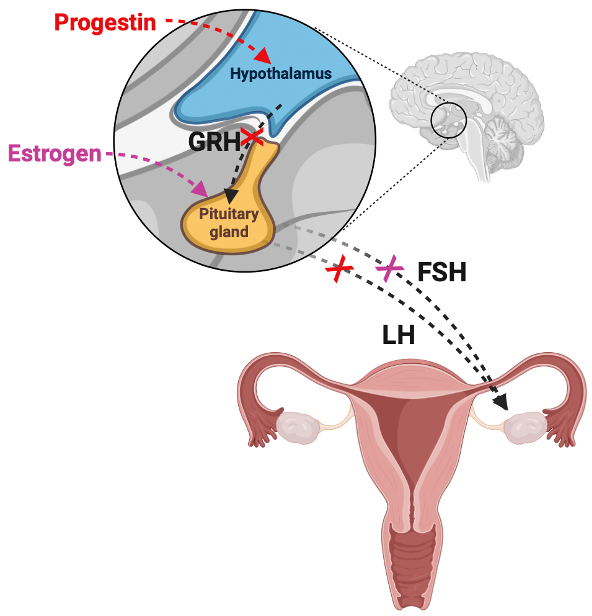In the quest for safer contraceptive options without sacrificing effectiveness, researchers have turned their attention to plants. They’ve discovered that certain plant-based estrogens can effectively prevent unwanted pregnancies. This article explores the current use of phytoestrogens as a natural alternative to conventional hormonal contraception. Specifically, we will delve into the benefits and mechanisms of Estetrol (E4), a naturally occurring estrogen sourced from plants, and its role in the FDA-approved birth control pill, NEXTSTELLIS.
What are Phytoestrogens?
Phytoestrogens are plant-derived, natural compounds found in many different food types. Some examples are nuts, fruits, grains, seeds and most abundantly, soybeans. “Phyto” is a word of Greek origin, meaning “plant”, and estrogen is a hormone produced by both females and males for regulating functions within our bodies. It is similar to, but not the same as the estrogen that we make in our bodies. It is believed that consuming phytoestrogens in moderation has a variety of health benefits, including preventing cancer, atherosclerosis and osteoporosis.
What is Estetrol and how does it prevent pregnancy?
Estetrol is a human estrogen that can be sourced from plants for contraception in the form of a birth control pill. E4 was discovered back in 1965 in the urine of pregnant women. Interestingly, it is only produced during pregnancy. Like other estrogens found in commonly used birth control pills, E4 works with another hormone called progestin to prevent certain changes in the menstrual cycle (Figure 1). E4 only acts on certain tissues, so while it can help regulate the menstrual cycle, it is also gentle on the breasts and liver. Research has shown that E4 has the following characteristics:
Prevents damage to and death of neurons (cells that send signals through our body so that we can breathe, walk, talk, etc.),
Increase bone density and strength,
Protect from damage to our blood vessels , and
Inhibit ovulation.
NEXTSTELLIS is the first FDA-approved plant-based estrogen birth control using E4. It is a combination birth control pill that uses estrogen (as E4) and progestin hormones for pregnancy prevention. Most other birth control pills on the market use a modified form of estrogen called ethinyl estradiol. As mentioned above, E4 has been found circulating in the body between mother and baby and is a natural human estrogen. However, the E4 used in NEXTSTELLIS birth control pills are plant-based, phytoestrogens. The diagram below illustrates how combination oral contraceptives usually prevent pregnancies. NEXTSTELLIS works in the same way:
Figure 1. Mechanism of Progestin and Estrogen to Prevent Ovulation.
Progestin prevents the hypothalamus from releasing gonadotropin-releasing hormone (GRH). This then prevents the pituitary gland from secreting luteinizing hormone (LH), which inhibits ovulation. Progestin also makes the cervical mucus very thick so sperm cells cannot easily travel through it, towards the fallopian tubes. Meanwhile, estrogens prevent the release of gonadotropins and follicle-stimulating hormone (FSH) to prevent a dominant follicle from developing. Created using Biorender.com.
Benefits, Risks, Effectiveness and Safety of NEXTSTELLIS
Two clinical trials were conducted on NEXTSTELLIS, which led to the FDA approval of this drug. These trials included over 3500 females of all races from Europe, Russia and North America (USA and Canada). The women were between the ages of 16 and 35 years of age.
It was found that regular menstrual cycles were maintained in most women on NEXTSTELLIS, so it is good for regulating monthly cycles. In addition, when taken as directed, NEXTSTELLIS is 98% effective at preventing pregnancy.
The most common side effects that lead to the discontinuation of NEXTSTELLIS in the USA/Canada were metrorrhagia (bleeding in between periods), menorrhagia (heavy periods), vaginal bleeding, and weight increase. Although most common, the above-mentioned side effects occurred in less than 1% of the women enrolled in these trials. Other common side effects reported by NEXTSTELLIS are mood changes, headache, breast tenderness, pain and discomfort, painful periods, acne, and decreased sex drive. It is important to know that NEXTSTELLIS, like other forms of birth control, do not protect from HIV AIDS or other sexually transmitted diseases or infections.
While NEXTSTELLIS is safe for use by most women, there are some people who should not take it:
NEXTSTELLIS is less effective if BMI is 30 or higher,
Smokers,
Females age 35 and older,
Those who have ever had blood clots, a history of heart attacks, stroke, or other heart valve problems,
Those with high blood pressure that is not controlled by medication,
Those who have had diabetes for over 20 years,
…and more. Visit the NEXTSTELLIS website for a detailed list.
Conclusions
As the interest for contraceptive options with fewer unwanted side effect grows, the exploration of plant-based estrogens such as E4 offers a promising alternative to traditional hormonal birth control methods. NEXTSTELLIS demonstrates that phytoestrogens can be both effective and gentle on the body. While there are some risks and limitations, the benefits of using a natural, plant-sourced estrogen for pregnancy prevention are significant. As research continues, the future of contraception may increasingly lean towards these naturally occurring compounds, providing women with safer and more holistic options.
References
For more information, check out these articles:
Estetrol/Drospirenone: A Review in Oral Contraception: https://www.ncbi.nlm.nih.gov/pmc/articles/PMC9363382/
Estetrol: A New Choice for Contraception: https://www.ncbi.nlm.nih.gov/pmc/articles/PMC8658652/
NEXTSTELLIS website: https://www.NEXTSTELLIS.com/
NEXTSTELLIS FAQ: https://www.NEXTSTELLIS.com/faqs/
NEXTSTELLIS drug snapshot: https://www.fda.gov/drugs/drug-approvals-and-databases/drug-trials-snapshots-NEXTSTELLIS
The pros and cons of phytoestrogens: https://www.ncbi.nlm.nih.gov/pmc/articles/PMC3074428/ Assessed and Endorsed by the MedReport Medical Review Board



